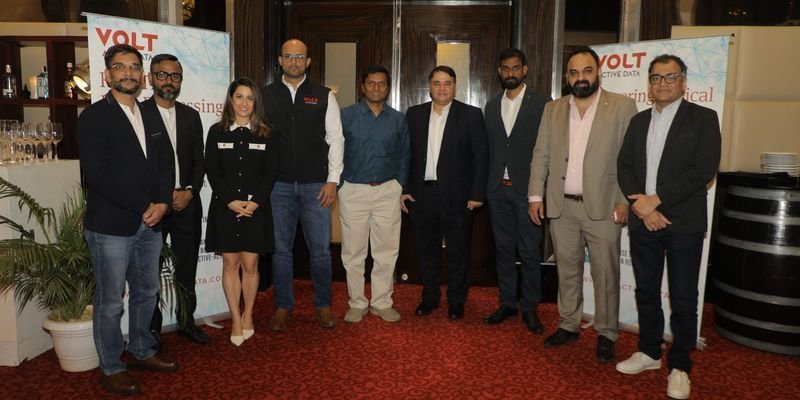Startup
iD Fresh turns profitable, clocks 16% rise in FY24 revenue

Packaged foods seller iD Fresh turned profitable in FY24, earning a net profit of Rs 4.56 crore against a loss of Rs 32.8 crore incurred in the previous fiscal year.
The company, which also sells idli and dosa batter as well as frozen food like parathas and chutneys, posted a 16.3% year-on-year (YoY) increase in its operating revenue to Rs 557.84 crore in FY24, compared with Rs 479.29 crore earned in the previous year, filings with the Registrar of Companies showed.
Improvements in the topline were matched by a rise in total expenses, which rose 8% YoY to Rs 558.2 crore in FY24. This was primarily due to rise in the cost of materials, employee benefits expenses, and other expenses including advertising costs.
The brand’s ready-to-cook batters, its largest segment, clocked a 24% YoY increase in sales to Rs 237 crore while the sales of its second-largest selling segment, parotta, increased by 10% YoY to Rs 183 crore.
Bengaluru-based iD Fresh recently announced the company’s foray into the spices market with the launch of three spice variants—red chilli powder, garam masala, and sambar powder.
It had earlier told YourStory about the company’s plans to expand its presence in north India where it does not have a strong hold yet, starting with Delhi and expanding to Chandigarh and Agra.
Startup
Transform your presence: Secrets to commanding any room

Have you ever walked into a room and felt instantly noticed, respected, and even admired? What if you could consistently make that kind of impact—effortlessly? Mastering the art of influence and winning over any room is a skill that separates leaders from followers. It’s not about being the loudest or most dominant in the space, but about exuding a magnetic presence that naturally draws people to you. In 2025, mastering influence can transform your career, relationships, and self-confidence, and it all begins with understanding the deeper psychology behind human connection. Whether you’re at a networking event, in a meeting, or even at a social gathering, this article will guide you through the steps to becoming the person who leaves a lasting impression wherever you go.
Ways to master influence
1. Project confidence
Confidence is the foundation of influence. When you exude confidence, others are naturally drawn to you. It’s about believing in your abilities, projecting a strong presence, and feeling comfortable in your own skin.
- Practice self-affirmation: Start each day with a positive affirmation to reinforce your belief in your abilities.
- Body language speaks volumes: Stand tall, maintain open posture, and make eye contact to project confidence.
- Embrace imperfection: Let go of the need to be perfect. People are drawn to authenticity more than flawless presentations.
- Face challenges head-on: Show that you can handle adversity gracefully, as calm and confidence in tough situations make you magnetic.
2. Work on your conversation skills
Influence is largely built on the way you communicate with others. Being able to hold engaging conversations, listen actively, and make others feel heard will significantly increase your influence in any room.
- Be genuinely curious: Ask open-ended questions to show interest in others.
- Listen actively: Focus on what others are saying, nodding occasionally, and summarising to show understanding.
- Speak with clarity: Avoid rambling and get straight to the point. Make your words count by being clear and concise.
- Use humour: A well-timed, appropriate joke can lighten the mood and draw people closer to you.
- Empathise: Acknowledge emotions, whether positive or negative, and offer thoughtful responses.
3. Be present and engaged
Being fully present when interacting with others shows that you value them, which makes you more magnetic. Engaging with people without distractions allows you to connect on a deeper level.
- Put away distractions: In a room full of people, put your phone away to give them your undivided attention.
- Mind your energy: Your energy is contagious. Stay positive, enthusiastic, and approachable.
- Make others feel seen: A simple nod or smile can make someone feel like they matter, boosting your likability.
- Be mindful of your reactions: Avoid reacting impulsively. Instead, pause and respond thoughtfully to show control and grace.
4. Cultivate charisma with body language
Your body language plays a crucial role in how you’re perceived. Cultivating positive, open body language can amplify your influence and draw people to you in an instant.
- Smile often: A warm, genuine smile immediately makes you more approachable.
- Open your posture: Keep your arms uncrossed and face people directly to project openness and confidence.
- Use gestures effectively: Don’t be afraid to use hand gestures to emphasize points, but make sure they feel natural.
- Mirror others: Subtly mimicking someone’s body language can create rapport and make them feel more comfortable with you.
5. Connect through authenticity
Authenticity builds trust and makes you more relatable. When you present yourself honestly, without pretence, people are naturally attracted to your genuine nature.
- Be honest about your experiences: Share personal stories that resonate with others.
- Own your flaws: People are drawn to those who embrace their imperfections with confidence.
- Show vulnerability: Don’t be afraid to express your true feelings. Vulnerability creates connection and trust.
- Be empathetic: Show understanding and care for others’ feelings and perspectives.
6. Exude positive energy
Positive energy is magnetic. When you radiate optimism and enthusiasm, people are naturally drawn to your uplifting presence.
- Look for the good: Focus on the positives in any situation and share that outlook with others.
- Avoid complaining: People are drawn to those who offer solutions, not those who focus on problems.
- Use compliments generously: Recognising and appreciating others helps spread positive energy and builds goodwill.
- Be mindful of your tone: Ensure that your voice and speech exude optimism and enthusiasm.
Conclusion
Mastering the art of influence is not about being loud or overpowering; it’s about cultivating an aura that draws people to you. By practising confidence, mastering conversations, being present, using body language effectively, showing authenticity, and exuding positive energy, you’ll naturally become a magnetic presence in any room. Influence is about connection, trust, and authenticity, and when you lead with these qualities, you’ll find yourself winning over any room, effortlessly. So step into 2025 with the confidence that you can master influence and become the person everyone is drawn to.
Startup
Maximising IoT Data value in the digital age: Top tech experts share strategies at exclusive roundtable

Amidst the whirlwind of digital transformation, businesses are under immense pressure to innovate and adapt. The ability to build applications that are scalable, responsive, and capable of handling complex, real-time data is no longer just a competitive advantage but essential for survival in today’s fast-paced market.
To explore the key strategies behind creating such applications, an exclusive roundtable hosted by Volt Active Data in collaboration with YourStory, brought together some of the most forward-thinking leaders in technology to deliberate on the topic ‘Internet of Things (IoT) for the Digitally Connected World: Understanding How to Maximize Value Out of IoT’. The discussion featured experts like Manoj Chandiramani, President and Founder of Just24; Vamsi Mohan, CTO of Intelligence Node; Vivek Parihar, Head of Engineering at Purplle; Gaurav Batra, Founder and CEO of CyberFrat; Sanjeev Shankar Saha, Director and Founder of 4Brains Technologies; Rohan Patil, Founder and CTO of Tannum Consulting; and Fahad Khan, Sales Director – APAC at Volt Active Data.
Moderated by Avanne Dubash, Consultant Anchor at YourStory Media, the roundtable provided a platform for these industry leaders to dive deep into the challenges, opportunities, and innovative approaches to building the next generation of applications that can thrive in a connected world.
Setting the context
The discussion began by reflecting on recent digital disruptions, such as system crashes during high-demand scenarios like the Coldplay concert ticket sales or Taylor Swift’s concert bookings. These events served as stark reminders of the growing complexities businesses face in processing massive real-time data efficiently.
Experts pointed out that customers today expect seamless, instantaneous experiences across services. This demand amplifies the importance of IoT technologies, which enable systems, devices, and applications to connect and share data in real time. However, the challenges of speed, reliability, and scalability are immense—this is where solutions like those offered by Volt Active Data come into play, enabling businesses to process and act on data within milliseconds.
Fahad Khan, Sales Director – APAC, Volt Active Data, discussed the pivotal role of edge computing in IoT ecosystems. He explained how edge devices are transforming industries by enabling real-time data processing closer to the source. For example, in manufacturing, traditional physical inspections are being replaced with imaging technologies and edge devices, reducing turnaround times and enhancing efficiency. Fahad emphasized that secure, fast edge processing is critical in industries where time-sensitive decisions are paramount.
Challenges and opportunities with IoT
The panel emphasized that IoT is reshaping business by addressing key challenges and opening up significant opportunities. Discussions spanned various sectors, with examples of how IOT is adding value and the challenges.
IoT applications generate high volumes of data and require faster processing to extract the value from the event and act on the threat or opportunity. Moving data from the source to a centralized location results in high processing times which defeats the purpose. Critical applications such as autonomous vehicles or smart grids, require real-time decision-making with very low latency.
Extracting value from the data within a few milliseconds is an advantage in various businesses like Retail Operational Efficiency, Better customer experience, Sustainability, Energy Management Smart Cities, and other digitally connected use cases.
One recurring discussion was the importance of edge computing. By processing data locally rather than sending it to centralized systems, edge computing reduces latency and enhances security. This approach is critical for applications such as aircraft inspections, where turnaround time is crucial, and in retail, where hyper-personalized customer experiences drive engagement.
IoT in retail, manufacturing, and beyond
The conversation delved into how IoT is transforming supply chain management, particularly in sectors like manufacturing and retail. Experts shared insights into the use of IoT devices for inventory tracking, pilferage prevention, and optimizing operations in warehouses. These applications have been instrumental in improving efficiency and reducing costs.
Retailers are also leveraging IoT to deliver hyper-personalised offers and real-time advertisements based on customer behaviour and sentiment. Additionally, the rise of quick commerce, enabled by mobile edge processing, is revolutionising consumer behaviour, even in remote areas.
Security
One of the critical challenges in IoT adoption is security. The discussion highlighted the vulnerabilities of interconnected devices and the constant threat of cyberattacks. Experts emphasized the importance of rapid threat detection and real-time data processing to mitigate these risks. Examples included the challenges faced by electric and autonomous vehicles, where IoT plays a vital role in ensuring safety and security.
IoT protocols, while innovative, often require continuous monitoring and improvement to address potential breaches. The panel underscored the cyclical nature of security threats and the need for proactive solutions to safeguard sensitive data.
The conversation also addressed concerns about data privacy and the impact of government regulations mandating real-time data sharing. While regulations aim to enhance transparency and security, they often raise questions about user privacy and data misuse. The panel discussed how businesses must balance innovation with compliance to build trust and maintain competitive advantage.
Measuring ROI in IoT
As businesses invest in IoT, demonstrating a clear return on investment (ROI) is important for the success of the project. The panel explored key metrics for evaluating IoT projects, including long-term cost savings, enhanced efficiency, and improved customer experiences. Information flow and consumer awareness were highlighted as significant drivers of IoT adoption across various industries.
The role of modern data platforms
The session concluded with a focus on the evolution of data platforms and their role in IoT ecosystems. Traditional architectures often struggle to meet the demands of real-time data processing, making modern, low-latency platforms essential for scalability and efficiency. Volt Active Data’s capabilities in this area were showcased, highlighting their potential to revolutionize IoT applications in smart cities, traffic management, and energy sectors.
The roundtable discussion reinforced the immense potential of IoT in driving innovation and solving real-world challenges. From improving operational efficiency in manufacturing to enabling smarter cities and more secure systems, IoT is at the forefront of technological transformation.
As businesses navigate this landscape, collaboration between technology providers, industry leaders, and regulators will be crucial to unlocking the full value of IoT. With solutions like Volt Active Data leading the charge, the future of IoT promises to be both dynamic and transformative.
Startup
Startup news and updates: Daily roundup (January 8, 2025)

From women in the industry blending culture and passion in advertising and filmmaking to a startup accepting receiving a record-breaking Rs 8 crore offer on Shark Tank India, YourStory brings today’s headlines that highlight significant developments across industries.
Here’s a roundup of key stories:
Featured stories
How Amita Madhvani became leader in advertising and production
Amita Madhvani’s upbringing in a close-knit chawl in Mahim instilled in her a love for community and storytelling. Inspired by her parents’ values of service and adaptability, she entered the male-dominated advertising industry of the 1980s, thriving through hard work and curiosity.
Her time at advertising giants like Ogilvy and Leo Burnett broadened her perspective, allowing her to see the industry from the agency’s vantage point.
As she grew in the industry and became the co-partner and producer at Equinox Films and the co-founder of Ram Madhvani Films, Madhvani played a crucial role in steering these companies to prominence.
Latest news
SEBI issues warning to Ola Electric
The Securities and Exchange Board of India (SEBI) has issued a warning notice to electric vehicle maker Ola Electric for violating disclosure norms.
The warning states that the company’s Chairman and Managing Director, Bhavish Aggarwal, shared information about the company’s store expansion plans on social media before notifying the stock exchanges.
On December 2, Aggarwal announced that Ola Electric intended to open 3,200 stores by December 20 as it aimed to increase its store count to 4,000 due to a decline in its market share. However, on December 19, the company postponed the opening of these stores to December 25.
Swiggy launches Snacc
A new player in the quick food delivery space, Swiggy’s latest app Snacc seems to have features of its private label Swiggy Cafe and Swiggy Bolt, its 10-minute food delivery service.
Snacc, which is operational in pin codes near the company’s headquarters in Bengaluru and operational between 7 AM to 1 AM, features breakfast, meals, beverages and snacks predominantly unbranded in nature, except select products from Blue Tokai.
Funding news
RAS Luxury secures $5M from Unilever Ventures to fuel omnichannel expansion
Farm-to-face beauty and personal care brand RAS Luxury Skincare raised $5 million in a Series A funding round led by Unilever Ventures.
The round also saw participation from Amazon SMBhav Venture Fund, existing investors like Sixth Sense Ventures and angel investors, including the family of Keki Mistry.
RAS plans to use the funds for various growth initiatives including expanding its retail footprint and plans to grow its exclusive brand outlets from the current two to 50. The company aims for offline channels to generate 25% of its revenue within the next four years.
Culture Circle accepts Rs 3 Cr deal on Shark Tank India

Devansh Jain Nawal, and Ackshay Jain, Co-Founders, Culture Circle
Luxury app Culture Circle, which offers authenticated collection of sneakers, streetwear, and luxury fashion, accepted a strategic deal of Rs 3 crore for 3% equity from Kunal Bahl and Ritesh Agarwal, declining a deal of over Rs 8 crore on Shark Tank India.
“Culture Circle was built to solve one of the biggest challenges in luxury fashion—trust…Our goal is to make authentic luxury accessible to all, and this milestone on Shark Tank validates our mission and hard work,” said Devansh Jain Nawal, Founder & CEO, Culture Circle.
The company said that it was praised for its proprietary AI-powered Culture Circle authentication system, SourceX.
Other news
LenDenClub launches daily earning loans for P2P lenders
Peer-to-peer (P2P) lending platform LenDenClub launched a new daily earning loan that allows lenders to earn daily interest along with principal repayments, credited directly to their bank accounts.
With the launch, the platform allows lenders/investors a choice of loans starting from a 9-month tenure, with interest income beginning the next day, the company said.
It serves as an alternative for individuals seeking regular income through the LenDenClub platform. Lenders can lend as little as Rs 250 to a borrower with a choice out of hundreds of borrowers on the platform, it added.
“By offering daily income from loans, we provide lenders with immediate liquidity and flexibility. This initiative aligns with our goal of simplifying financial opportunities through the usage of technology. Our system processed 23 crore transactions between lenders and borrowers on the platform. Our technology is so robust that we are able to provide such complex solutions like processing daily EMIs from borrowers to lenders,” said Bhavin Patel, CEO, LenDenClub
Inflexor Ventures elevates Harsha Mundhada, Murali Krishna Gunturu to partners
Sector-agnostic venture capital fund Inflexor Ventures, which specialises in seed to Series B investments, announced the elevation of Harsha Mundhada and Murali Krishna Gunturu as partners in the fund.
“Harsha and Murali have been integral to our success, demonstrating both the vision and perseverance that define great investors. Their elevation to Partners underscores our belief in fostering leadership from within and ensuring that our founders continue to receive top-notch support at every stage of their journey,” said Jatin Desai, Managing Partner at Inflexor.
Harsha Mundhada has been with Inflexor since 2016, and prior to this stint, she worked with Deloitte, Ernst and Young, and PriceWaterhouseCooper in their transaction advisory department. Meanwhile, Murali Krishna Gunturu was a founding member of Inflexor. He previously worked with Ernst and Young and also played the role of a virtual CFO for a few SMEs.
Inflexor recently raised its first Opportunities Fund and is gearing up to raise its third blind pool corpus of Rs 1,250 crore in FY26.
GrowthJockey launches Intellsys
GrowthJockey, a player in venture architecture and technological innovation, launched Intellsys, an AI-powered growth marketing intelligence platform designed to empower businesses with real-time, data-driven insights.
At the core of Intellsys is Copilot AI, which leverages community intelligence to provide actionable insights, bridging the gap between data analysts and business leaders.
Intellsys simplifies this complexity posed by vase data by consolidating information from over 200 data sources and analysing more than 15 million data points per second. It tracks over 1,000 metrics in real time.
Intellsys represents a new era in marketing intelligence, combining cutting-edge AI with an intuitive user experience. We are not just offering a tool; we’re providing a solution that empowers businesses to make smarter decisions, faster. Intellsys enables leaders to focus on strategic growth while leaving the complexity of data management to AI,” said Ashutosh Kumar, CEO of GrowthJockey.
(This article will be updated with the latest news throughout the day.)
-

 Startup Stories1 year ago
Startup Stories1 year agoWhy Millennials, GenZs Are Riding The Investment Tech Wave In India
-

 Startup Stories1 year ago
Startup Stories1 year agoStartups That Caught Our Eyes In September 2023
-

 Startup Stories1 year ago
Startup Stories1 year agoHow Raaho Is Using Tech To Transform India’s Fragmented Commercial Trucking
-

 Startup Stories1 year ago
Startup Stories1 year agoMeet The 10 Indian Startup Gems In The Indian Jewellery Industry’s Crown
-

 Startup Stories1 year ago
Startup Stories1 year agoWOW Skin Science’s Blueprint For Breaking Through In The $783 Bn BPC Segment
-

 Crptocurrency10 months ago
Crptocurrency10 months agoLither is Making Crypto Safe, Fun, and Profitable for Everyone!
-

 Startup Stories1 year ago
Startup Stories1 year agoHow Volt Money Is Unlocking The Value Of Mutual Funds With Secured Lending
-

 E-commerce1 year ago
E-commerce1 year agoTop Online Couponing Trends To Watch Out For In 2016




